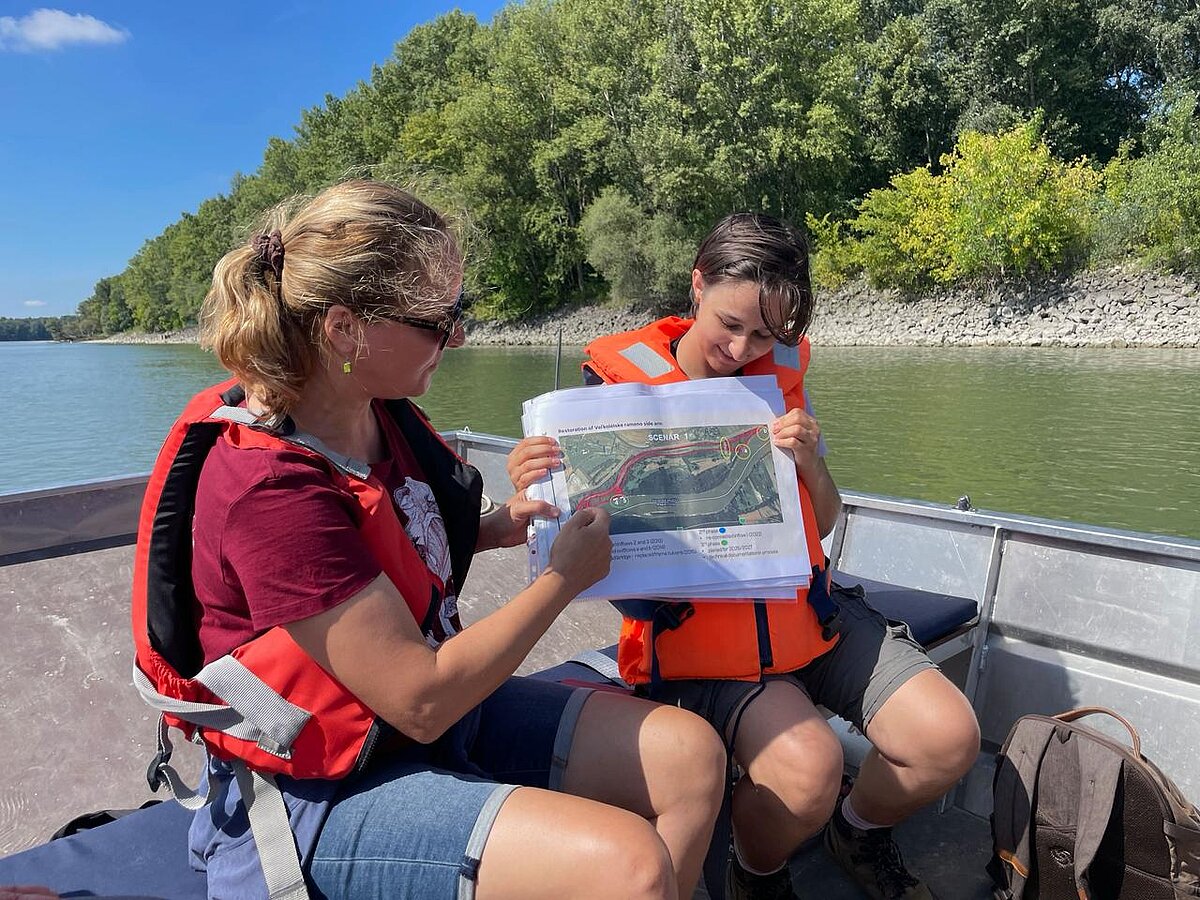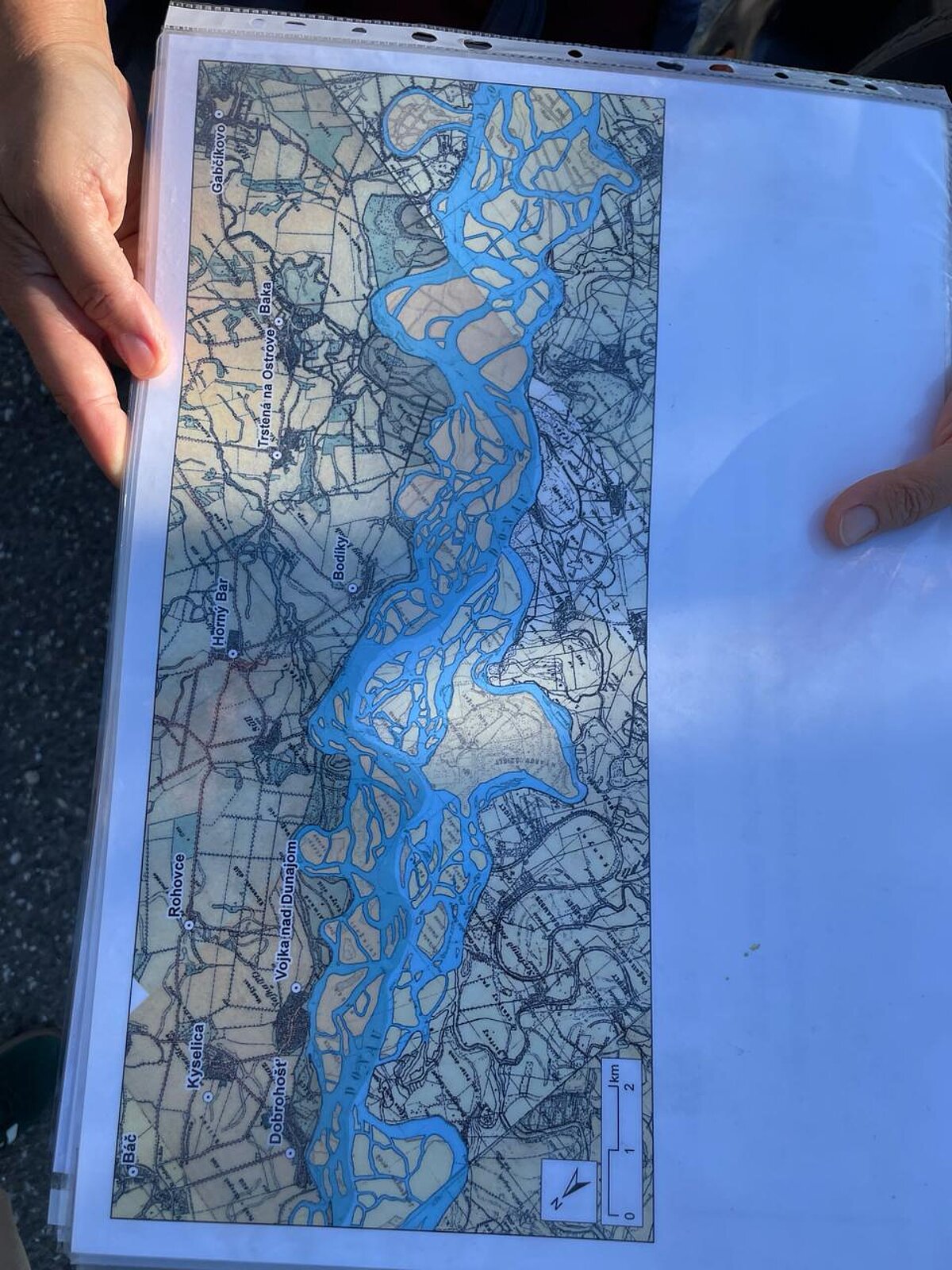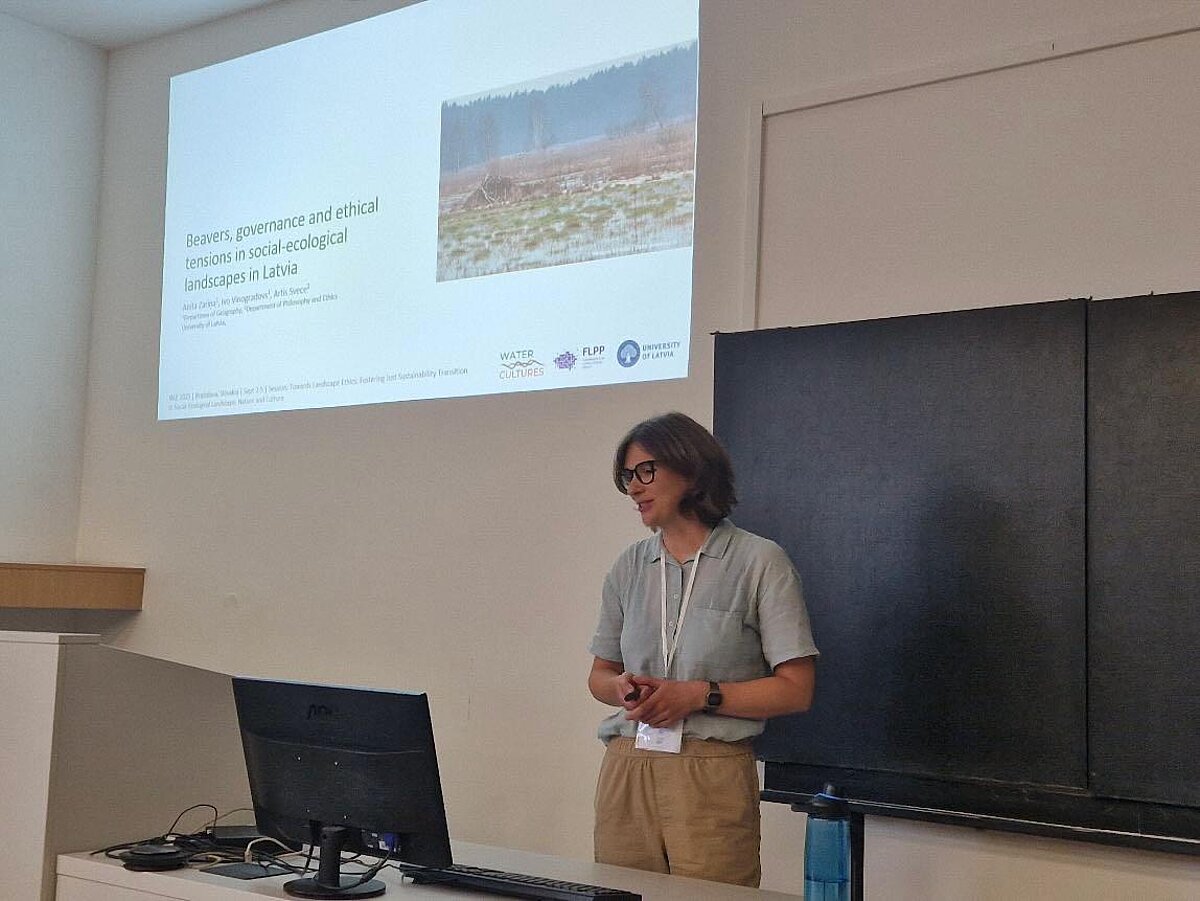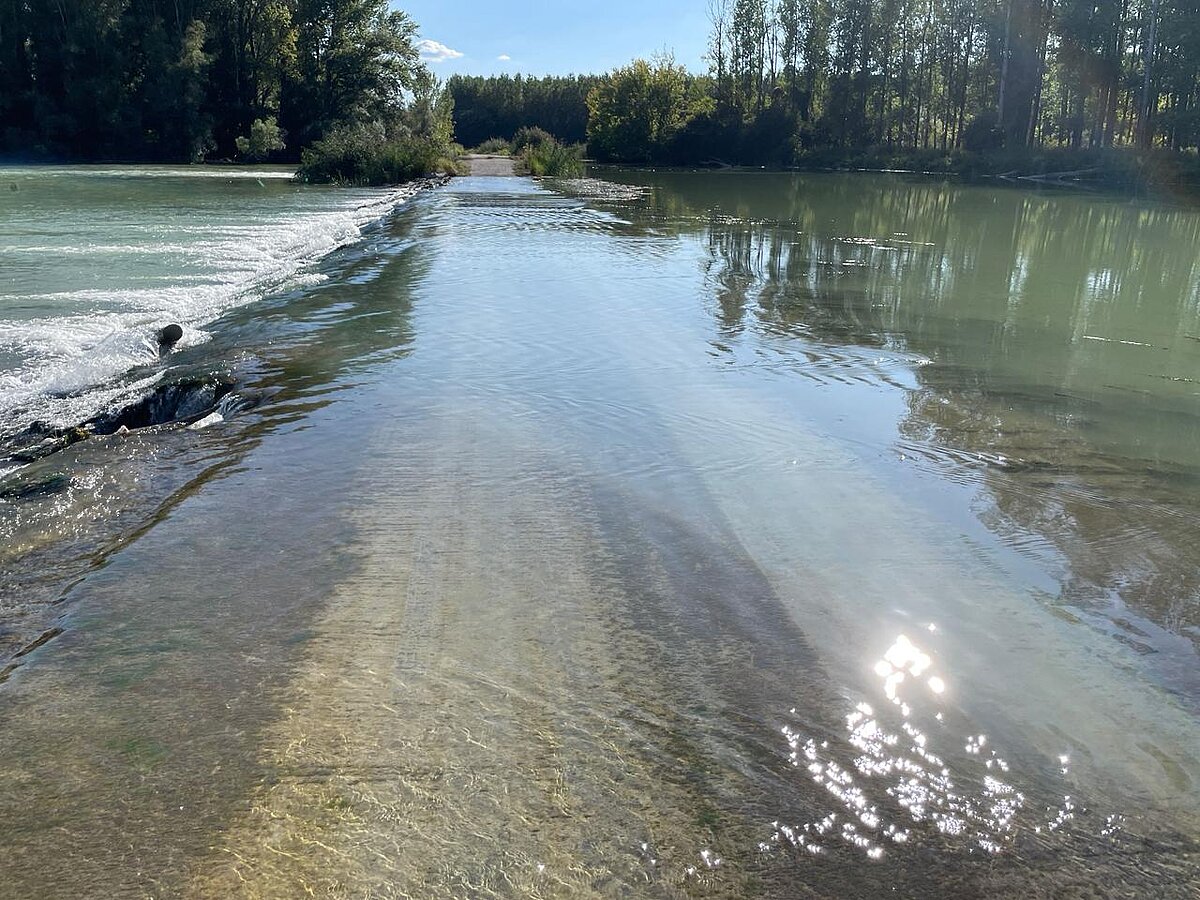
Her presentation raised the question of whether “naturalness” in today’s management paradigm should be understood as an ethical category or rather as an ontological one. It also asked whether landscapes can be governed solely through control, or whether coexistence with other species is possible.
In addition to her presentation, Anita Zariņa co-chaired a session on the use of oral history in landscape ecology, took part in discussions of the Historical Ecology Working Group, and, together with colleagues, joined a field excursion in the Danube valley to explore nature restoration practices such as reconnection of side-arms, riverbank re-naturalisation, and other approaches.

 CONFERENCE
CONFERENCE

